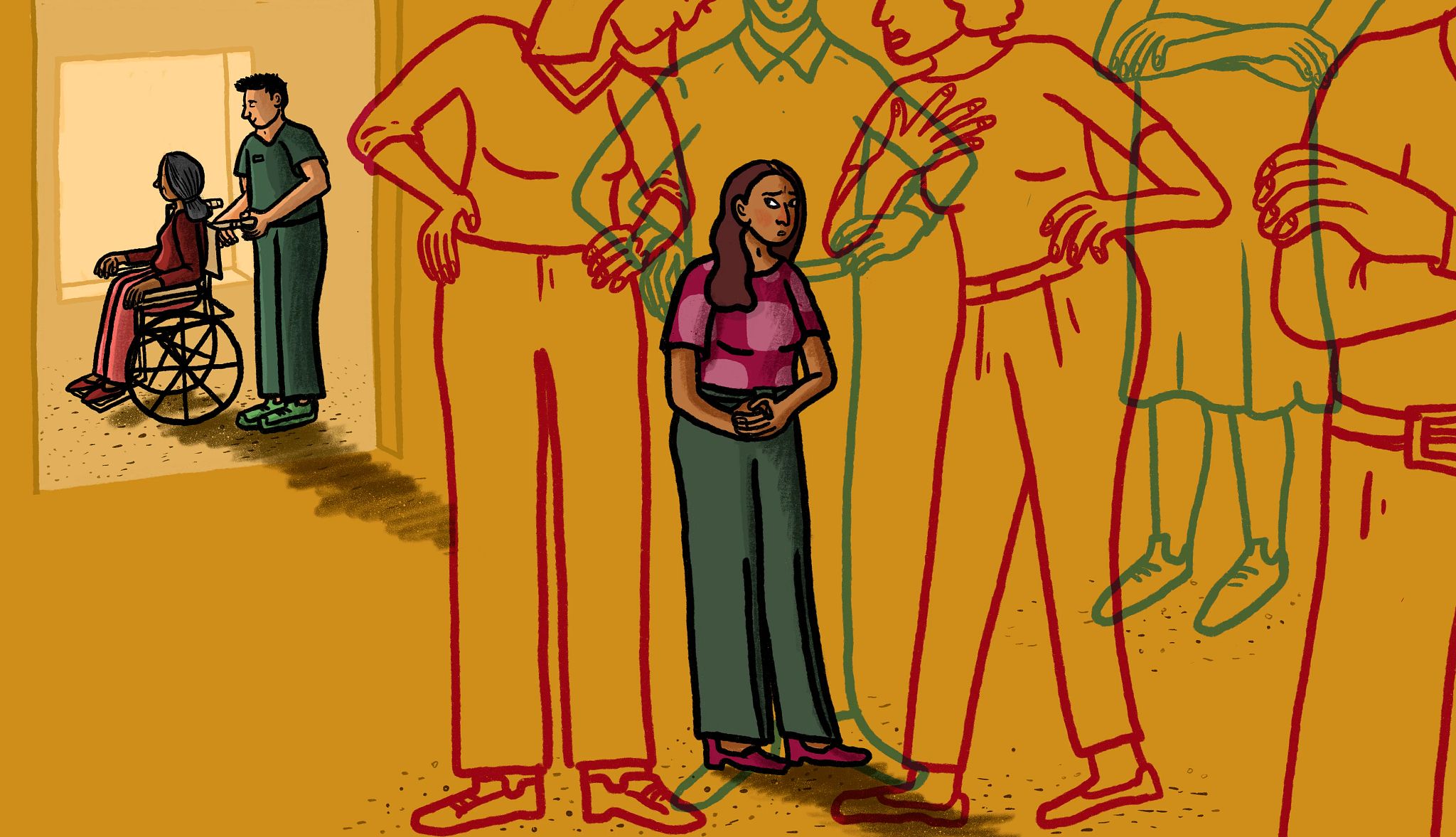AARP Hearing Center


Editors asked AARP Family Caregivers Discussion Group members and other caregivers to submit pressing questions they’d like family therapist and clinical psychologist Barry Jacobs to tackle in his caregiving column. Jacobs took on this hot-button topic.
Q: We made the decision to place Mom in a nursing home, with the agreement of other immediate family members who know her well. However, I have trouble knowing how to deal with those who say, “Oh, I could never do that to my mother.” My mom’s happy, engaged with others and even healthier, as the nurses and weekly doctor monitor her far better than any of us could. I still feel defensive, although this is vastly better for her.
(Letter edited for length and clarity.)
Jacobs: It’s understandable that you feel defensive. People make offhand judgmental remarks without thinking twice about the hurt they are causing. They may know little about nursing homes other than what they’ve heard, but they aren’t familiar with your mother and what she needs. As a psychologist, I would guess they are reflexively distancing themselves from your situation because contemplating it and over-identifying with you makes them feel anxious. But as a former caregiver who anguished over deciding to place both my mother and stepfather in nursing homes toward the end of their lives, these insensitive critics just tick me off.
Join AARP’s Fight for Caregivers
Here's how you can help:
- Sign up to become part of AARP’s online advocacy network and urge lawmakers to pass legislation to save caregivers time and money.
- Find out more about how we’re fighting for you every day in Congress and across the country.
- AARP is your fierce defender on the issues that matter to people age 50-plus. Become a member or renew your membership today.
No caregiver likes to be second-guessed about any caregiving decision. That’s especially true for the agonizing choice to place a care receiver in a nursing home. The reasons are many.
Overly broad and extreme views
Nursing homes are not perfect. The pandemic widely revealed the staffing shortages and challenges with infection control that are common to many of them. Even before the pandemic, their reputations were mixed at best. As with any place that’s not home sweet home, some residents, like your mother, are happy there; some never will be, regardless of a place’s excellence. And quality of care can vary from one place to the next.


































































More From AARP
10 Common Mistakes That Family Caregivers Make
Experts share how to avoid these caregiving pitfallsHow to Set Boundaries as a Family Caregiver
Sometimes saying ‘no’ is the only answerHow Caregiving Can Alter Dreams and Goals
Post-caregiving life may be different than you imagined — in a good way